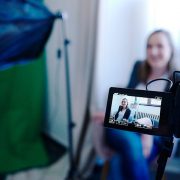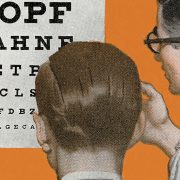Stories Give Us Access to the Senses
If I asked you to tell me about your day would you give me the number of breaths you took? Would you inform me that the number of steps you took was 23% higher than yesterday? Would you tell me about how many ounces of coffee you drank or the minutes you waited to get your coffee served? You might. But you’re more likely to tell me about the old friend you met at a cafe and how you spent the noon hour on a walk to catch up.
Numbers can show great leaps of progress or small measures of change. They can articulate a problem and stun. They can represent chilling or inspiring statistics. But are they powerful enough to evoke action? Are they human enough?
Founder of charity: water, Scott Harrison, presented on the scarcity of clean water for people in developing countries at the 2014 OTA conference. He outlined the problems these people faced and the solutions charity: water was providing using numbers and stories. Guess which would stick?
- He gave the audience a fact: 800 million people are living without access to clean water in the world today.
- He told the audience a story: A teenage girl living in a remote village spent most of her days walking to a natural well, waiting in line to collect water and walking back with a heavy pot full of water. One day her pot fell from her hands, breaking on the dry ground. From the pieces of broken ceramic, she pulled the rope that held it to her body. She used it to end her life.
What is more memorable? (I’ll give you a hint: I had to look up the number.)
- Another fact: charity: water has been able to supply more than three million people get access to clean water
- Another story: charity: water helped build a well in a community where mothers and daughters were responsible for collecting water. After it had been installed, one woman told the organization that not only did she have extra time in her day and enough water to care for her family, she could care for herself. She felt beautiful.
The statistics might wow, but numbers so large are unimaginable. The problems that each person faces are simplified when they become a lump of 800 million. The people are simplified. When we invite narrative to the discussion, however, we have a mnemonic device for something so enormous and unreachable.
Stories give us access to the senses and can lodge these things into our memories. It’s no wonder that we teach children about numbers in units of cheerios, tricycles and pumpkins — things they can touch, smell and taste — instead of an abstract symbol.
Numbers give us important reference points, too. We can say 800 million people are without access to clean drinking water, and we can give it a scope by saying that’s 1 in 9 people on the planet. Nine is a number I can comprehend and 1 in 9 is a perspective I can count on my fingers — a perspective that just might give me a story to tell.
Alison is a graphic designer and social media lead at Matt Jensen Marketing.







